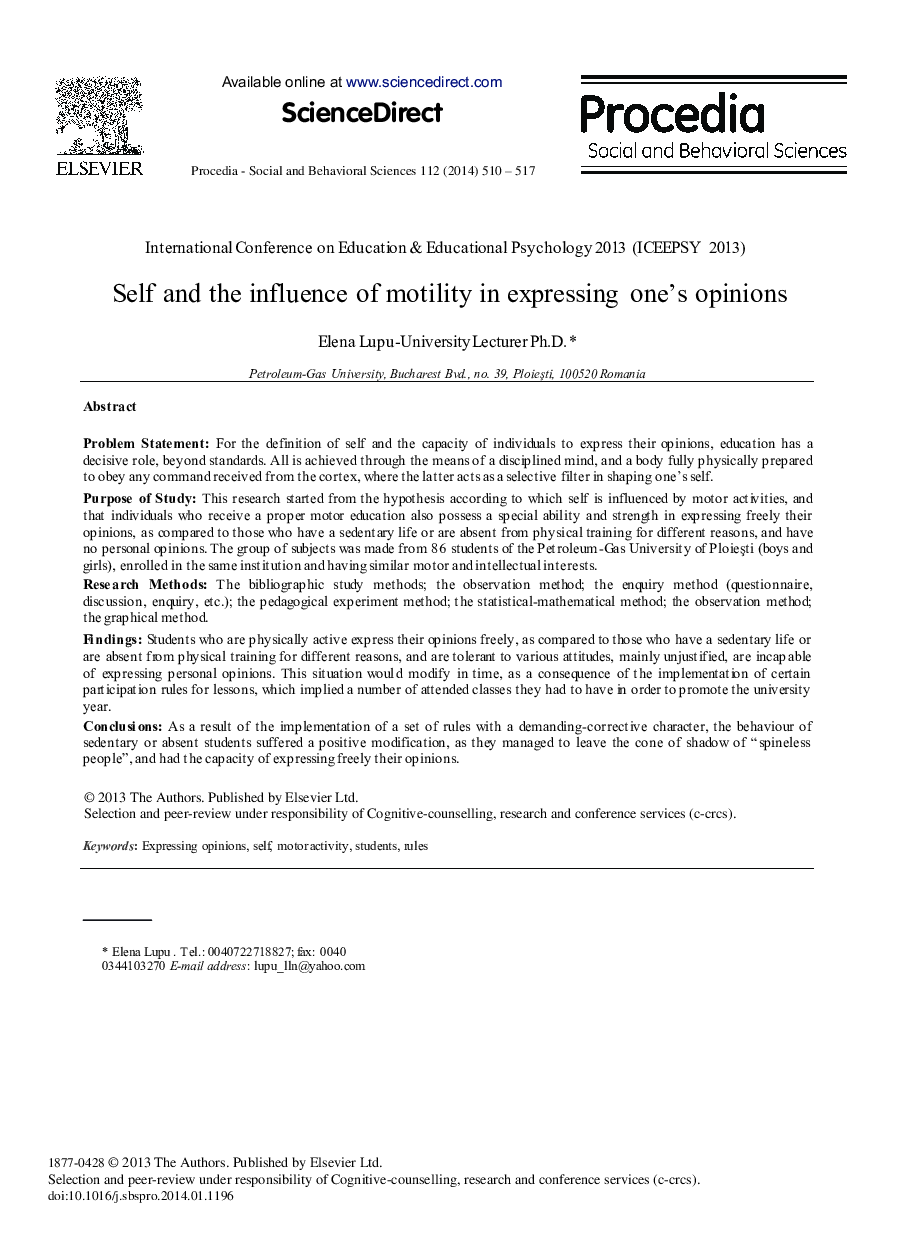| Article ID | Journal | Published Year | Pages | File Type |
|---|---|---|---|---|
| 1115465 | Procedia - Social and Behavioral Sciences | 2014 | 8 Pages |
Problem StatementFor the definition of self and the capacity of individuals to express their opinions, education has a decisive role, beyond standards. All is achieved through the means of a disciplined mind, and a body fully physically prepared to obey any command received from the cortex, where the latter acts as a selective filter in shaping one's self.Purpose of StudyThis research started from the hypothesis according to which self is influenced by motor activities, and that individuals who receive a proper motor education also possess a special ability and strength in expressing freely their opinions, as compared to those who have a sedentary life or are absent from physical training for different reasons, and have no personal opinions. The group of subjects was made from 86 students of the Petroleum -Gas University of Ploieşti (boys and girls), enrolled in the same institution and having similar motor and intellectual interests.Research MethodsThe bibliographic study methods; the observation method; the enquiry method (questionnaire, discussion, enquiry, etc.); the pedagogical experiment method; the statistical-mathematical method; the observation method; the graphical method.FindingsStudents who are physically active express their opinions freely, as compared to those who have a sedentary life or are absent from physical training for different reasons, and are tolerant to various attitudes, mainly unjustified, are incapable of expressing personal opinions. This situation would modify in time, as a consequence of the implementation of certain participation rules for lessons, which implied a number of attended classes they had to have in order to promote the university year.ConclusionsAs a result of the implementation of a set of rules with a demanding-corrective character, the behaviour of sedentary or absent students suffered a positive modification, as they managed to leave the cone of shadow of “spineless people”, and had the capacity of expressing freely their opinions.
